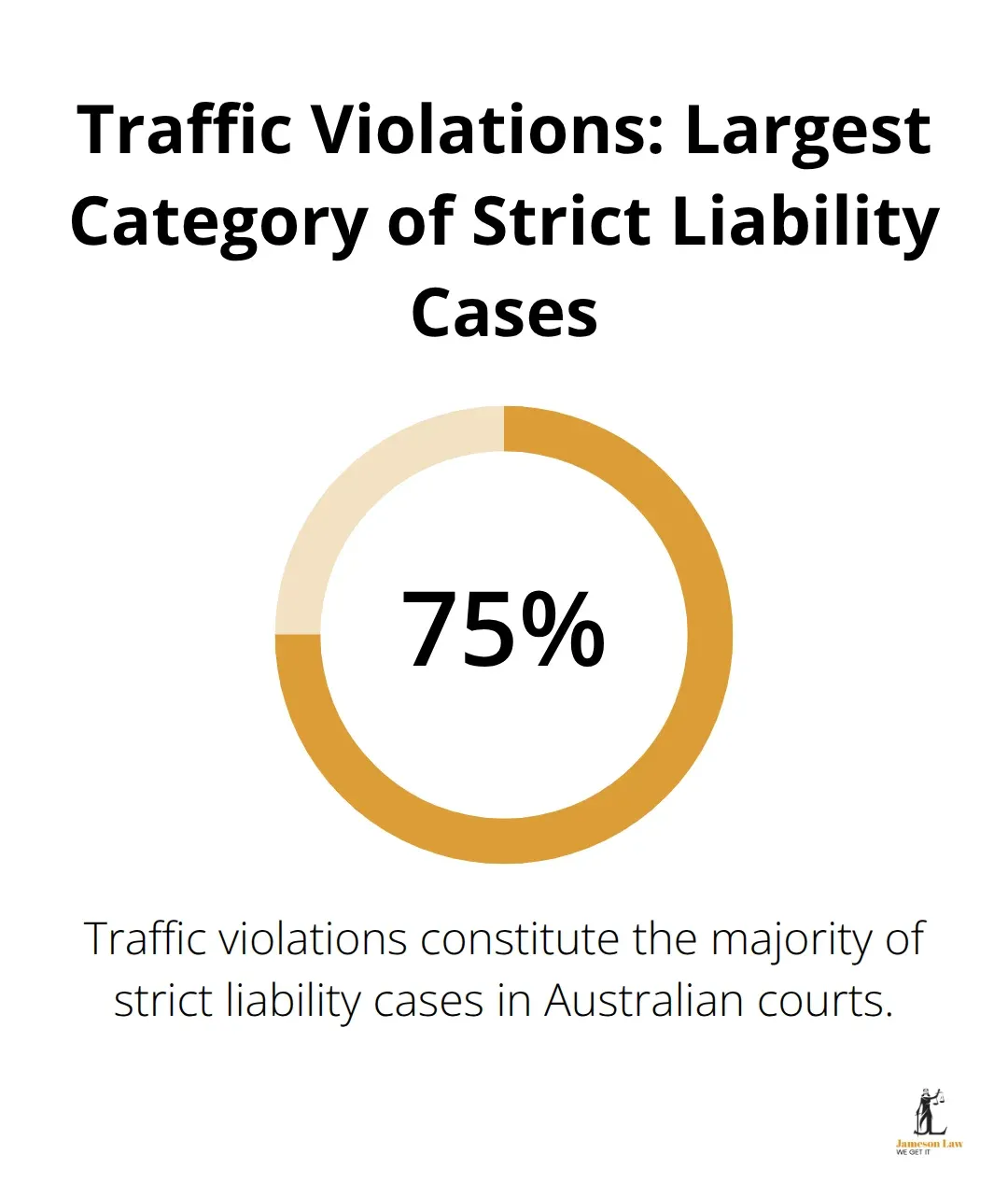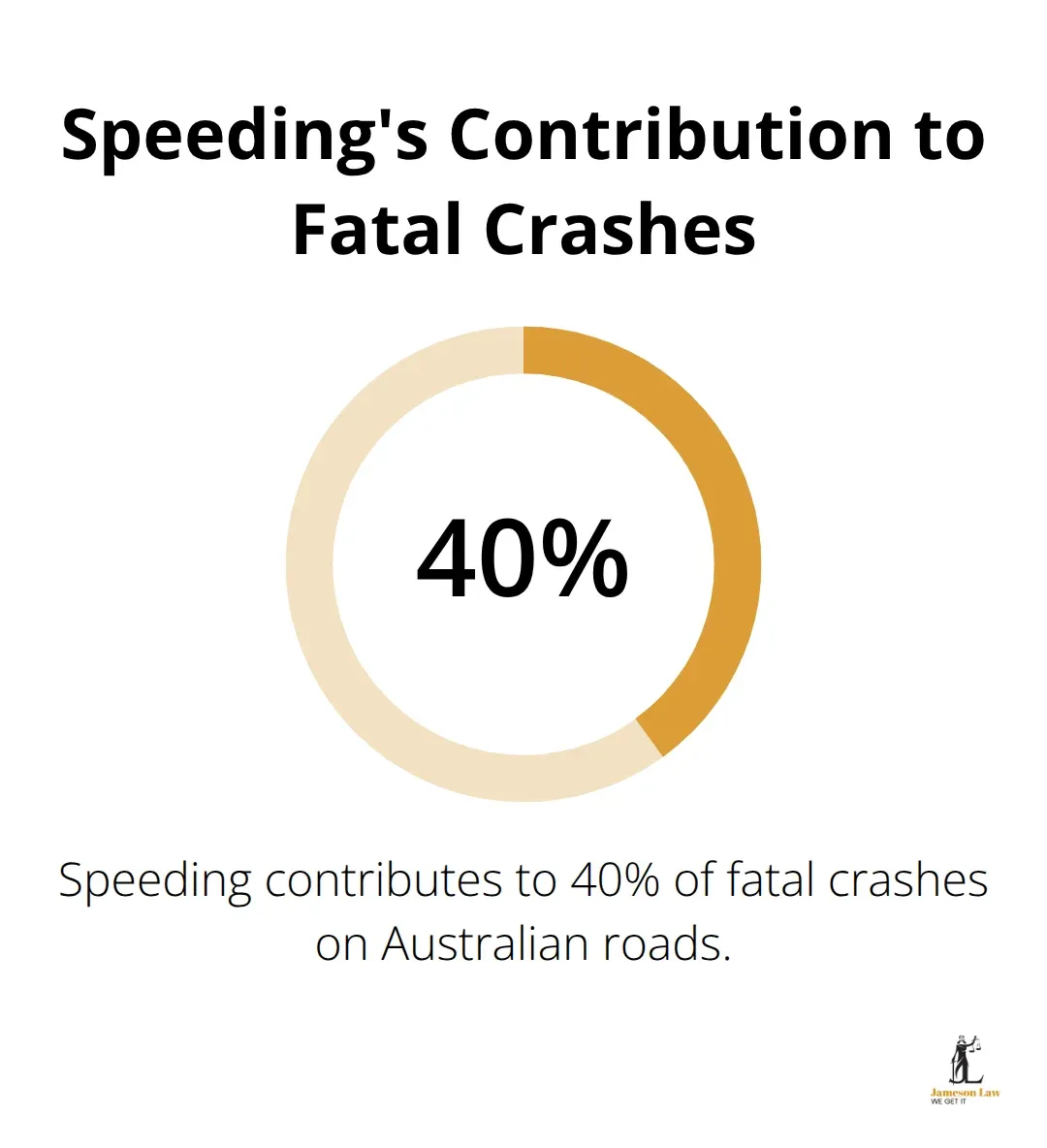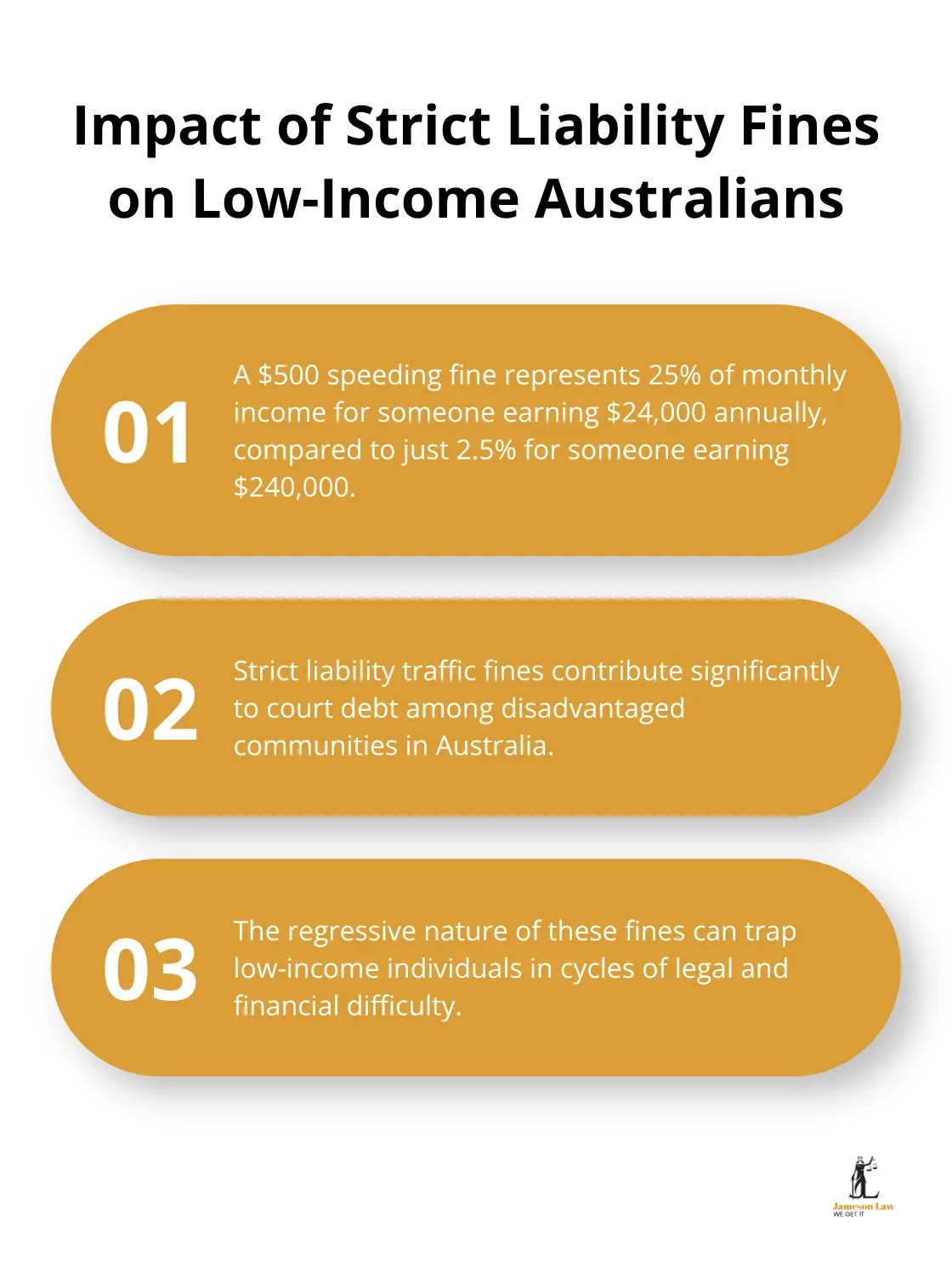Strict liability in criminal law removes the need to prove intent, making defendants responsible regardless of their mental state. This legal principle sparks intense debate across Australia’s justice system.
We at Jameson Law see this controversy daily in practice. The question is not simple: does protecting public safety justify punishing people who never intended harm?
What Makes Strict Liability Different
Strict Liability Eliminates Intent Requirements
Strict liability offences operate without proof of mens rea. Criminal Code Act 1995 (Cth) s 5.6 explains that fault elements are normally required, yet Parliament can designate strict liability in specific provisions. The prosecution only needs to prove that the prohibited act occurred, regardless of intent. A limited safeguard exists in the form of an honest and reasonable mistake of fact defence, for example under Criminal Code (Qld) s 24. For policy context, see the Attorney-General’s Guide to Framing Commonwealth Offences.
Traffic Offences Form the Majority of Cases
Australian courts handle thousands of strict liability matters each year, with traffic infringements comprising the largest share. Examples include speeding, driving while suspended and certain drink driving categories. Regulatory breaches also feature, such as misleading statements to ASIC or environmental non-compliance overseen by the NSW EPA. For a broader rights-and-freedoms discussion, see the ALRC’s chapter on strict and absolute liability.

Penalties Apply Despite Absence of Intent
These offences can attract significant consequences including fines and licence suspensions. See government guidance on NSW penalty notices and general information from the Legal Services Commission of SA on exppiation and fines. The honest and reasonable mistake defence remains available but requires a genuine and objectively reasonable belief. Courts apply a reasonable person test to evaluate that claim.
The wide use of strict liability raises questions about fairness, especially where adverse outcomes follow conduct without criminal intent.
Why Does Strict Liability Exist in Criminal Law
Public Safety Demands Swift Action
According to the Australian Road Deaths Database, around 1,200–1,300 people die on Australian roads each year. Speeding remains a key factor. Strict liability in road rules lets authorities issue immediate penalties without proving intent, reinforcing deterrence in high-risk settings like school zones. For NSW enforcement and safety programs, see Transport for NSW Road Safety.

Similar logic applies in environmental protection where immediate administrative penalties can curb harmful conduct while investigations continue. See EPA NSW penalty notices.
Regulatory Compliance Becomes Measurable
Strict liability supports rapid compliance action in financial markets and taxation. For corporate disclosures and enforcement, refer to ASIC market regulation. For tax shortfalls and penalties, see the ATO’s penalties framework. In workplace safety, immediate sanctions can apply for unsafe practices, supported by SafeWork NSW guidance.
Administrative Efficiency Drives Implementation
Magistrates’ courts can process minor strict liability matters more quickly because intent evidence is not contested. This promotes consistency and reduces backlog. For court pathways, see the NSW Local Court criminal and traffic pages. Critics argue that efficiency should not eclipse fairness, a concern explored by the ALRC.
Why Strict Liability Violates Justice Principles
Punishment Without Guilt Undermines Legal Foundations
Australian criminal law traditionally requires proof of mens rea because punishment without intent challenges the moral basis of criminal responsibility. In He Kaw Teh v R (1985) HCA 43, the High Court emphasised the centrality of fault elements. When a suspended driver is penalised despite not receiving proper notice, the system risks punishing someone who believed they were complying. For definitions and contrasts, see our explainer on absolute liability.
Moral Culpability Disappears From Legal Assessment
A parent who speeds taking a sick child to hospital faces the same base penalty as a thrill-seeker. Identical outcomes for different moral contexts can erode confidence in justice. This also blurs the line between true criminal wrongdoing and administrative non-compliance.
Financial Penalties Disproportionately Impact Vulnerable Communities
Flat fines can have regressive effects. Government overviews and research show infringement systems can drive debt among disadvantaged groups. For policy materials on proportional responses, see the ALRC’s work on rights and freedoms and community-based sanctions. NSW penalty administration guidance is available at Revenue NSW.

Corporate Penalties Ignore Business Capacity
Uniform penalties can burden small operators more than large corporates. For example, food businesses face compliance action under NSW frameworks regardless of intent. See the NSW Food Authority offences and penalties. Our overview of product and regulatory liability explains how risk management and documented systems help demonstrate due diligence.
Final Thoughts
Strict liability sits at the intersection of public protection and individual justice. The ALRC recognises the need to calibrate when strict or absolute liability is appropriate. Many propose clearer criteria, stronger mistake-of-fact carve-outs and proportionate penalty settings.
If you are dealing with a strict liability allegation, early advice matters. Our team can assess evidence, consider defences, and negotiate outcomes where appropriate. For confidential help, call (02) 8806 0866 or visit our contact page.













